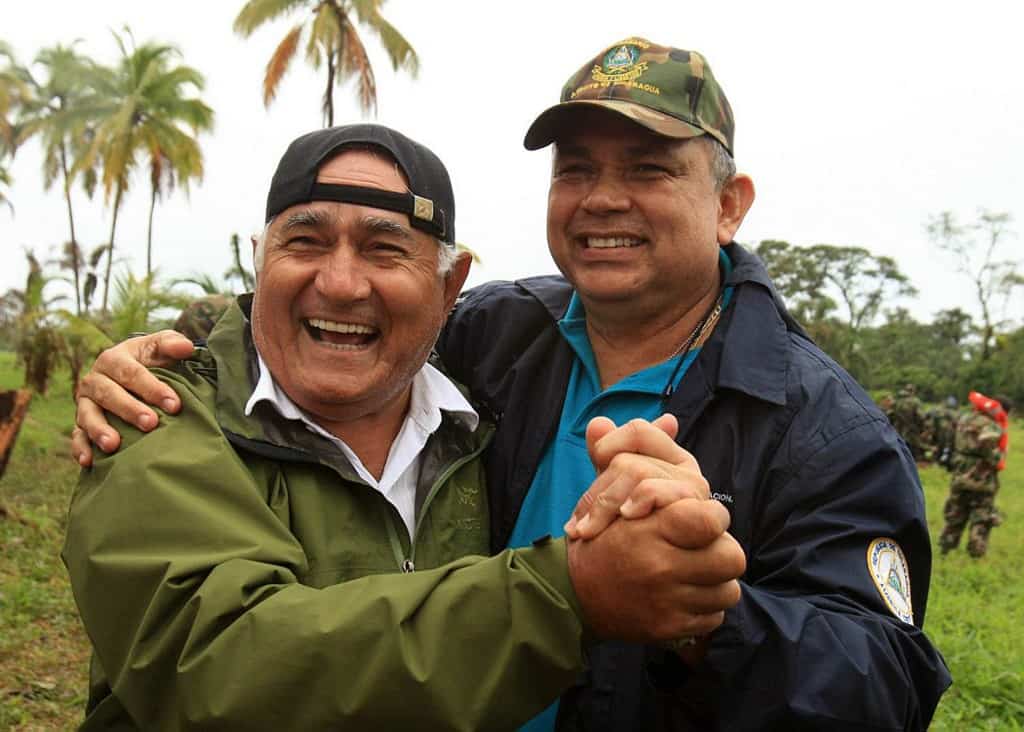The Nicaraguan ex-guerrilla Edén Pastora, known as “Comandante Cero,” died of a heart attack at 83 while he was hospitalized, his relatives reported Tuesday.
Pastora died in the early hours of the morning from “a sudden heart attack,” after spending several days in the Managua Military Hospital, his grandson, Álvaro Pastora, told AFP.
The leader, close to President Daniel Ortega, had been recently hospitalized after suffering a relapse of bronchopneumonia, he had told the Nicaragua Investiga news platform.
One of his sons, Álvaro Pastora, told the same website that his father was treated as if he had COVID-19, although he was not tested to determine if he had the new coronavirus, which has hit Nicaragua hard.
Guerrilla life
The legendary ex-guerrilla was the Ortega government delegate for the development of the Río San Juan basin, on the border with Costa Rica, which has been the source of border conflicts between both countries.
Pastora was born on November 15, 1936 in Ciudad Darío, studied at a Jesuit college and moved to Mexico to study medicine at the University of Guadalajara, but did not finish his studies and returned to Nicaragua in 1959.
He joined the guerrilla Sandinista National Liberation Front (FSLN) during the fight against the dictatorship of Anastasio Somoza, who was overthrown in 1979 by a popular insurrection.
“Commander Zero” gained notoriety in August 1978 when leading the assault on the National Palace, where the National Assembly (parliament) was in session, which allowed the release of dozens of FSLN militants in exchange for hostages, including Somoza’s relatives.
At the beginning of the Sandinista Revolution, he was vice minister of the Interior, but he left that office unhappy for what he denounced as an alignment with Cuba and the Soviet Union of the government headed by now President Daniel Ortega.
Opponent and ally
After breaking with the Sandinistas in 1981, Pastora settled in Costa Rica and created the Democratic Revolutionary Alliance (ARDE), which resumed the armed struggle to fight his ex-comrades from southern Nicaragua.
In 1984, during a press conference, he was the target of an attack in the town of La Penca, in northern Costa Rica. He was unhurt, but 11 people died, including several journalists.
After the Sandinista electoral defeat in 1990, Pastora remained in Costa Rica, where he obtained citizenship and dedicated himself to fishing and tourism.
On his return to Nicaragua, he entered political life and in 1996 tried to run for the presidency, but was inhibited by the Supreme Electoral Council (CSE) for having dual Nicaraguan and Costa Rican nationality.
After years of distancing himself from the FSLN, Pastora reconciled with Ortega when he returned to power in 2007, and defended him from the accusations of his rivals of being a dictator.
“I fought the political and moral errors that put the revolutionary state in danger with a rifle in my hand, directing thousands of men. Now (that Ortega) is doing it (well), it would be inconsistent against everything I said” if I did criticize, Pastora said in an interview with AFP in 2008.
Pastora was at the center of a border dispute between Nicaragua and Costa Rica that broke out in October 2010, following the dredging works of the San Juan river by the ex-guerrilla.
Costa Rica accused Nicaragua of making military incursions into its territory and of creating sediments that caused environmental damage. The International Court of Justice sentenced Nicaragua in 2018 to pay a million-dollar compensation for the case.
In the midst of the conflict, Pastora was included by the International Criminal Police Organization (Interpol) in the list of the most wanted at the request of Costa Rica, which accused him of invading its territory.
“Several times I have had to play the role of a bad boy,” but they can “continue to accuse me if necessary,” Pastora defended himself then.






